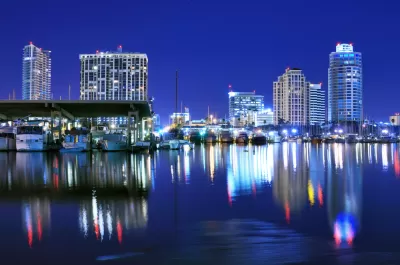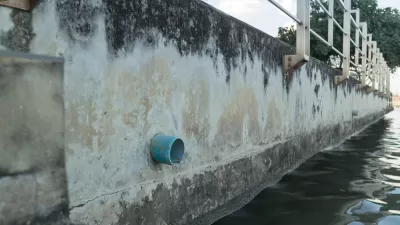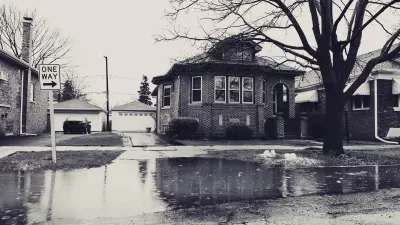A writer for the Tampa Bay Times critiques the city of St. Petersburg's response to repeat storm events that have sent millions of gallons of untreated wastewater into its public waters.

Charlie Frago writes of a recurring problem in St. Petersburg, Florida: rains overwhelming the city's wastewater system and sending millions of gallons of "untreated and partially treated sewage gushing into the waters of Tampa Bay and Boca Ciega Bay…"
Three-and-a-half million gallons of the previously described sewage overflowed the system in August 2015, prompting promises from elected officials that it wouldn't happen again. Yet along came Tropical Storm Colin in June 2016, causing "9.8 million of gallons of sewage — estimated to be 30 to 50 percent untreated sewage — [to spill] into the bay."
Frago critiques the efforts of the city to prevent ongoing sewage mishaps, summing up his assessment up with these excoriating words: "St. Petersburg had options. But the option officials chose was to do nothing." The feature-length article digs into the details of how the plan hatched after last August's storms fell short, and the additional measures that have since been added on to the city's stormwater emergency plans. For instance, the city is currently "conducting an 18-month study to determine where it needs to fix the leaky pipes that fill with rainwater during a storm, increasing the volume of waste that flows into the sewer plants."
FULL STORY: St. Petersburg had options during sewage crisis — so what happened?

Study: Maui’s Plan to Convert Vacation Rentals to Long-Term Housing Could Cause Nearly $1 Billion Economic Loss
The plan would reduce visitor accommodation by 25% resulting in 1,900 jobs lost.

Alabama: Trump Terminates Settlements for Black Communities Harmed By Raw Sewage
Trump deemed the landmark civil rights agreement “illegal DEI and environmental justice policy.”

Why Should We Subsidize Public Transportation?
Many public transit agencies face financial stress due to rising costs, declining fare revenue, and declining subsidies. Transit advocates must provide a strong business case for increasing public transit funding.

Paris Bike Boom Leads to Steep Drop in Air Pollution
The French city’s air quality has improved dramatically in the past 20 years, coinciding with a growth in cycling.

Why Housing Costs More to Build in California Than in Texas
Hard costs like labor and materials combined with ‘soft’ costs such as permitting make building in the San Francisco Bay Area almost three times as costly as in Texas cities.

San Diego County Sees a Rise in Urban Coyotes
San Diego County experiences a rise in urban coyotes, as sightings become prevalent throughout its urban neighbourhoods and surrounding areas.
Urban Design for Planners 1: Software Tools
This six-course series explores essential urban design concepts using open source software and equips planners with the tools they need to participate fully in the urban design process.
Planning for Universal Design
Learn the tools for implementing Universal Design in planning regulations.
Smith Gee Studio
Alamo Area Metropolitan Planning Organization
City of Santa Clarita
Institute for Housing and Urban Development Studies (IHS)
City of Grandview
Harvard GSD Executive Education
Toledo-Lucas County Plan Commissions
Salt Lake City
NYU Wagner Graduate School of Public Service





























